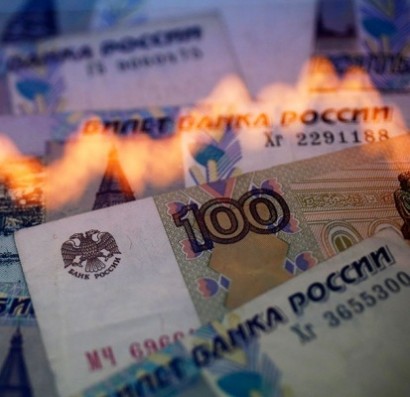+26 °C, +17 °C ... +31 °C Tomorrow:+35 °C

Economic data published Wednesday showed Russia’s economy moving further toward recession under the weight of Western sanctions and a sharp decline in the price for oil, its main source of hard currency. Although the rate of inflation is slowing, a sharp decline in retail sales and a drop in real wages indicated that consumers are bearing the brunt of the economic pressure. The government expects gross domestic product to shrink by 3% in 2015, the first drop since 2009; many private economists expect a deeper contraction. The Wednesday data from the Federal Statistics Service RosStat showed a decline in domestic demand, which had been one of the main drivers of the economy for years, but has been hit by a drop in consumer confidence. The consumer-price index added another 0.4% in the week to Feb. 16, making an annualized inflation rate of 15.9%. However the weekly price rise was the lowest since mid-December, when a sharp ruble devaluation led to record high weekly inflation figures. Economists say the inflationary effect of that devaluation could be wearing off. The ruble has lost almost a half of its value against the dollar over the past 12 months. “We hope it’s a stable trend, and expect inflation to peak at 17% in March,” said Alexander Isakov, economist at VTB Capital. Russia’s central bank expects inflation to start to slowing in the second half of the year and reach 15% by the year-end. Despite the high inflation, the country’s banks and companies are asking the central bank for lower borrowing costs, as the Western sanctions over Ukraine have closed intentional capital markets for them. The central bank’s base interest rate is at 15%. A slowing rate of inflation may provide hope that it bank could start lowering rates earlier. Meanwhile, “consumers are bearing the brunt of the economy problems,” Capital Economics said. Retail sales fell in January for the first time since 2009, while the decline in real wages was the steepest on record. Sales contracted by 4.4% year on year in January, and real wages fell by 8% from January 2014. The retrenchment in retail sales may in part be driven by a panic shopping spree in December, when millions of Russians hit the stores in an attempt to spend their sharply depreciating rubles on durable goods. The sale of nonfood items rose by 10.5% in December, while food sales showed a 0.4% decline. January was the first month in five years to show a drop in both food and nonfood items: 5.5% and 3.5% respectively. Meanwhile fixed capital investments extended their decline to 6.3% year-over-year in January. “The worsening investments figure marks a further trend deterioration on the back of falling corporate profits, external debt deleveraging, restrictive local financial conditions and high uncertainty from local economic policy and geopolitics,” said Dmitri Polevoy, chief economist at ING Bank. “The bottom line is that the economy has likely moved further into recessionary territory,” he added. |
MAMUL.am - News from Armenia, Artsakh (Nagorno-Karabakh) and the world
Republication or redistribution of MAMUL.am content is expressly prohibited without the prior written consent.
Address: 1 Charents str., Yerevan, Republic of Armenia.
Tel.: +374 (10) 55-20-59
E-mail: info@mamul.am
Tel.: +374 (91) 99-22-02
E-mail: marketing@mamul.am































